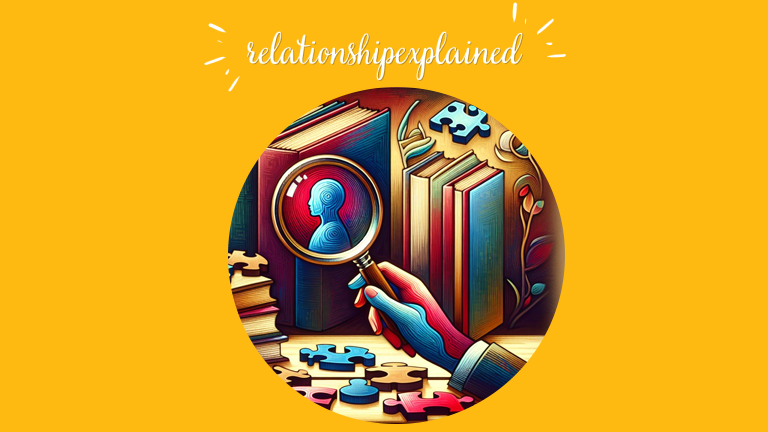10 Warning Signs of a Toxic Daughter
Recognizing troubling behaviors in your daughter can be a daunting challenge, especially when those behaviors veer into toxicity. It's a situation no parent wants to face, but identifying the signs early can be crucial for addressing the issue and nurturing a healthier relationship. From manipulative tactics to a lack of empathy, these warning signs are […]
Recognizing troubling behaviors in your daughter can be a daunting challenge, especially when those behaviors veer into toxicity.
It's a situation no parent wants to face, but identifying the signs early can be crucial for addressing the issue and nurturing a healthier relationship. From manipulative tactics to a lack of empathy, these warning signs are subtle yet significant indicators that something deeper may be amiss.
Well, we'll be going over:
- How to identify manipulative behaviors and understand their impact on family dynamics.
- The importance of recognizing constant criticism and its potential to harm self-esteem and relationships.
- Strategies for dealing with a lack of empathy and fostering a more understanding and compassionate environment.
Let's dive in.
Warning Sign 1: Manipulative Behavior
You've likely come across the term manipulation, but identifying it in your daughter's actions can be more challenging than you think. Manipulative behavior is a glaring red flag, signaling that your relationship might be heading into toxic territory. This behavior can take many forms, from guilt-tripping you into making decisions in her favor to twisting situations to blame others for her own mistakes.
One of the key signs of manipulative behavior is a consistent pattern of deceit or exaggeration. Your daughter might tell half-truths or outright lies to get her way. Another aspect is emotional manipulation. She might use your emotions against you, perhaps by playing the victim or expressing extreme emotional highs and lows to control your response.
Understanding these behaviors is crucial. It's not just about recognizing the signs but also about preparing yourself to address them effectively, ensuring that your relationship can steer towards a healthier path.
Warning Sign 2: Constant Criticism
If your daughter often criticizes you or others, it could be a red flag for toxic behavior. Constant criticism can take a toll on anyone's self-esteem and create an unwelcoming environment. This behavior might show itself in subtle jabs during conversations or more overt critiques about choices or appearances.
It's crucial to distinguish between constructive feedback, which is aimed at helping someone improve, and criticism that's meant to belittle or control. If you're noticing that your daughter's comments are frequently making you feel bad about yourself or she's relentless in pointing out flaws without any constructive purpose, it's time to address the issue.
Keep in mind, breaking this cycle involves open communication and setting clear boundaries about what is and isn't acceptable behavior. Encouraging empathy and understanding can also play a key role in transforming negative patterns into more positive interactions.
Warning Sign 3: Lack of Empathy
Recognizing a lack of empathy in your daughter is crucial. This trait manifests as an inability or unwillingness to understand or share the feelings of others. It's more than just a phase; it's a red flag signaling deeper issues.
When empathy is missing, your daughter might:
- Dismiss or ridicule others' feelings
- Show indifference to family members' or friends' distress
- Blame others for their own emotional state, refusing to acknowledge their role in the situation
This lack of empathy not only strains relationships but also hampers your daughter's social development. Encouraging open dialogue about emotions and demonstrating empathy in your own actions are steps forward. Remember, fostering sensitivity and understanding takes time and patience.
Warning Sign 4: Controlling Tendencies
If your daughter often insists on having things her way, shows an inability to compromise, or becomes upset when not in control, these are key indicators of controlling tendencies. This behavior not only puts a strain on your relationship but also affects her ability to form healthy connections with others.
Encouraging independence while setting clear boundaries is crucial. Discuss the importance of respect in relationships, emphasizing that control does not equate to love or respect. By addressing these behaviors early, you'll help your daughter develop healthier ways of interacting with those around her.
Warning Sign 5: Guilt Trips and Emotional Blackmail
Recognizing Guilt Trips and Emotional Blackmail in your daughter can be a critical warning sign of toxic behavior. If she frequently uses your emotions to manipulate situations or outcomes in her favor, it's a red flag. This tactic may include making you feel guilty for not acceding to her wishes or painting herself as the victim to gain sympathy and control.
- Common Indicators include:
- Statements like, "You don’t love me if you don’t do this for me."
- Bringing up past mistakes when they're irrelevant to the current discussion.
- Ignoring or dismissing your feelings when they don’t align with her demands.
Encountering these behaviors can be emotionally draining and lead to a strained relationship. It's essential to address these occurrences directly, emphasizing open communication and mutual respect. Setting boundaries is vital; it teaches the importance of healthy relationships and personal accountability.
Warning Sign 6: Boundary Issues
Recognizing boundary issues in your daughter is crucial for nurturing a healthy parent-child relationship. If your daughter often disregards your personal space, makes demands that invade your privacy, or refuses to accept a 'no' for an answer, these are clear signs of boundary issues. Such behavior can lead to tension and discomfort, making it essential to address promptly.
Establishing and maintaining boundaries is not just about setting rules; it's about teaching your daughter the importance of respect and mutual understanding. It's vital for her to learn that everyone has their limits and that respecting these limits is key to building strong, healthy relationships. When boundaries are repeatedly crossed, it affects not only the personal dynamic but also your daughter's ability to interact with others outside the family constructively.
Warning Sign 7: Narcissistic Traits
Narcissistic traits in your daughter might be harder to identify than you think. Signs of narcissism often manifest as an inflated sense of self-importance, a deep need for excessive attention and admiration, and a lack of empathy for others. If your daughter consistently believes she's better than her peers and is often dismissive of their feelings, these could be red flags.
Another key indicator is if she reacts negatively to criticism or even constructive feedback. Instead of a healthy conversation, a narcissistic response might include anger, denial, or even retaliation. This behavior can seriously impact family dynamics and relationships outside of the home.
Addressing narcissistic traits involves more than just recognition. It’s about fostering an environment where empathy, humility, and respect for others' boundaries are highly valued. Encouraging your daughter to see situations from others' perspectives and highlighting the importance of teamwork and mutual support can steer her away from narcissistic tendencies towards more positive behaviors.
Warning Sign 8: Negative Influence on Others
Recognizing a toxic daughter's adverse impact on those around her is pivotal. If your daughter frequently leads her peers into trouble or encourages negative behaviors, this is a glaring red flag. It's not just about who she surrounds herself with; it's about the influence she exerts.
Key Indicators involve:
- Pushing peers towards harmful activities
- Spreading negativity or gossip
- Dominating friendships to guide decisions and actions
In such scenarios, your role is to intervene thoughtfully. Discuss the repercussions of her actions on others and herself. Promoting positive peer interactions and emphasizing the value of constructive influence can steer her toward healthier social habits.
Warning Sign 9: Difficulty Accepting Responsibility
Witnessing your daughter consistently shirking responsibility can be a profound red flag signaling deeper issues. If she's prone to blaming others for her mistakes, dodging consequences, or simply cannot admit when she's wrong, it's indicative of a problem that needs addressing. This behavior not only strains relationships but also hinders personal growth and professional development.
Recognizing this trait involves paying attention to patterns. Does she deflect criticism? Evade accountability? These actions illustrate a reluctance to face the reality of her actions. It’s essential to intervene with constructive conversations and support to help her understand the importance of responsibility. This involves a delicate balance of guidance and allowing her to face natural consequences, fostering a more reflective and responsible approach to life's challenges.
Warning Sign 10: Intense Emotional Reactions
If your daughter's responses to everyday situations tend toward the extreme, it's a red flag worth noting. Intense emotional reactions, including anger, frustration, or sadness over seemingly minor issues, can signify underlying problems. These behaviors not only strain domestic life but also indicate difficulty managing emotions effectively—a key component of healthy psychological development.
Monitoring these reactions is essential. If you observe your daughter frequently lashing out, breaking down over small setbacks, or experiencing mood swings that seem disproportionate to the event, it's time to take a closer look. Such behavior may stem from stress, anxiety, or other emotional challenges that need addressing.
Encouraging open dialogue about feelings and seeking professional help if necessary can be crucial steps in managing these intense emotional reactions. Importantly, fostering a supportive environment allows your daughter to express her feelings safely and learn more adaptive coping strategies.
Conclusion
Recognizing the signs of a toxic daughter is the first step towards healing and improvement for both of you. It's about understanding her behaviors and the impact they have on your relationship. By keeping an eye out for these warning signs and addressing them with empathy, you're paving the way for open discussions and healthier interactions.
Remember, it's crucial to seek professional help when needed and to create a nurturing environment that encourages positive change. Your efforts can make a significant difference in transforming a challenging relationship into a source of strength and mutual respect.












